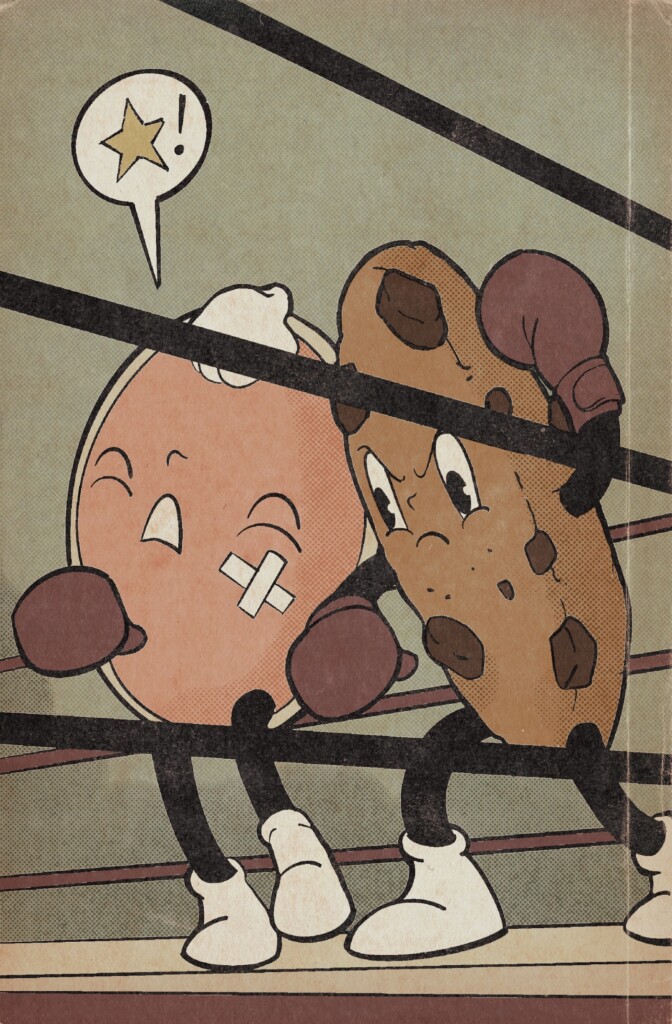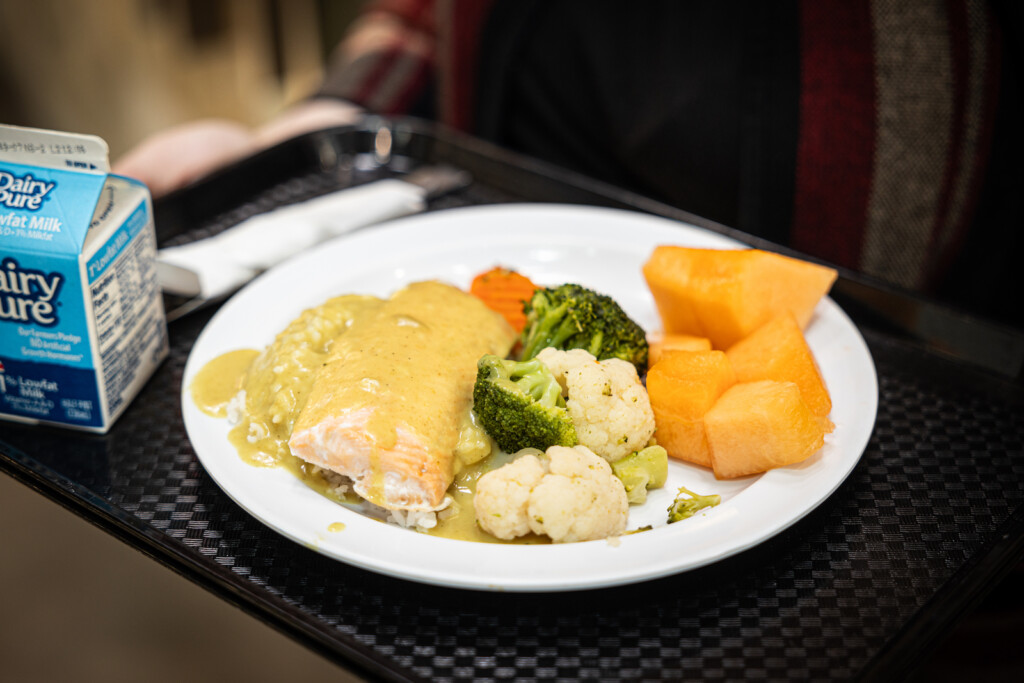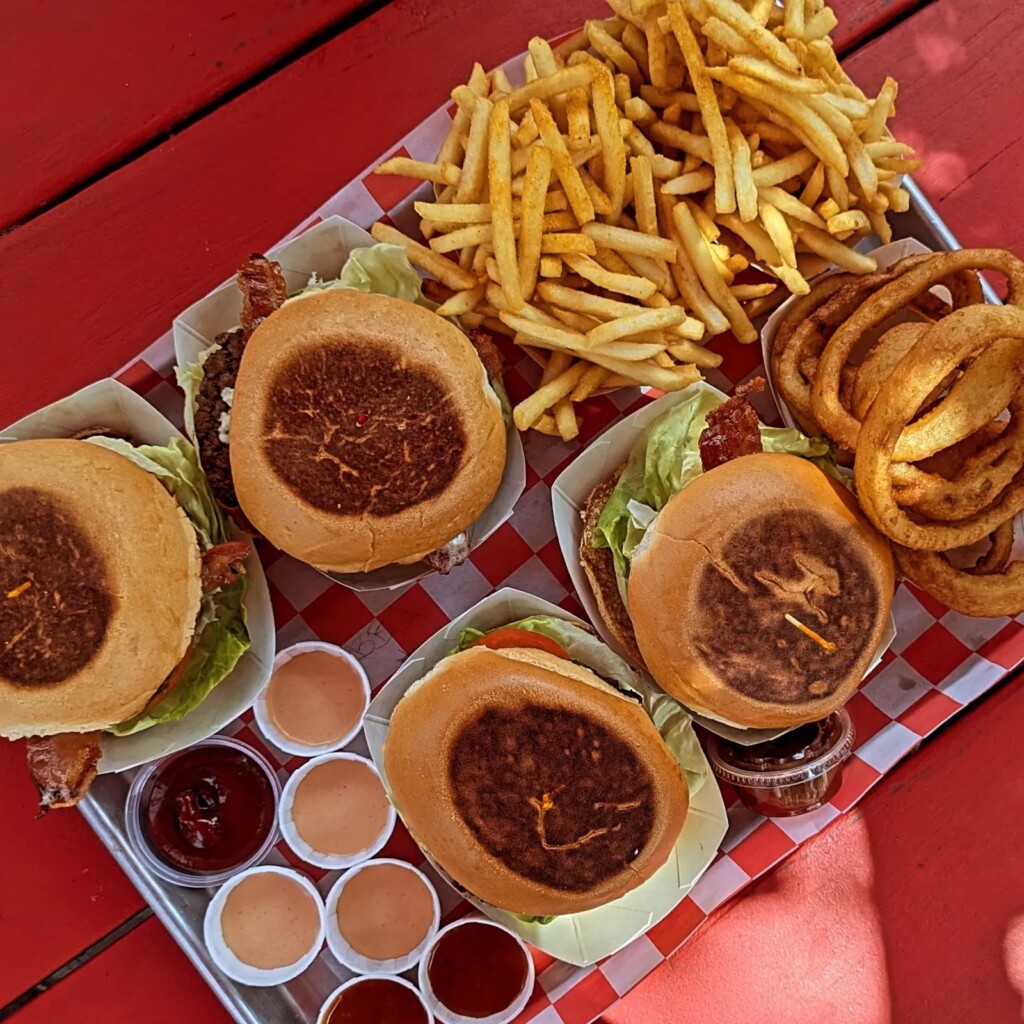Can you copyright something you cook? Can you trademark a recipe? If you sell an amazing chocolate cake with 15 ingredients, are you the only one who can make it and sell it with those exact 15 things?
While there are copyright laws for music, and songs that sound similar (See David Bowie and “Under Pressure” versus Vanilla Ice and “Ice Ice Baby”), and electronics (See Edison versus Westinghouse for the lightbulb), there are very few protections for making and selling food or printing recipes.
In May 2022, Crumbl cookies sued for “damages” caused by Dirty Dough and Crave Cookie Co’s. use of marketing materials that were too similar, rotating menus, and recipes. One part of the accusation is that a Crumbl employee stole recipes and founded Dirty Dough using their exact ingredients. Dirty Dough fought back, filing a claim that Crumbl had caused them financial difficulties because of the lawsuit.
The battle has continued through 2023, and while Crumbl and Crave reached agreements, Dirty Dough is still working out the kinks.
How much control can a person or company have over recipes and food production?
The US Copyright Office says, “…[T]he Office cannot register recipes consisting of a set of ingredients and a process for preparing a dish. In contrast, a recipe that creatively explains or depicts how or why to perform a particular activity may be copyrightable. A registration for a recipe may cover the written description or explanation of a process that appears in the work, as well as any photographs or illustrations that are owned by the applicant. However, the registration will not cover the list of ingredients that appear in each recipe, the underlying process for making the dish, or the resulting dish itself. The registration will also not cover the activities described in the work that are procedures, processes, or methods of operation, which are not subject to copyright protection.”

Different cookie shops have special offerings to help them stand out from the competition. Dirty Dough offers Gossners flavored milks, like strawberry, orange cream and root beer. Crumbl has their own pH-balanced water, and even a card game called Cover your Cookies. Crave offers loaded sodas, while Batch offers cinnamon rolls and special holiday pies and dinner rolls.
Reegan Young, Co-owner of Batch Baked Goods in Riverton, talked about the heavy competition surrounding her shop. “Everytime I see more sugar places pop up, I think, ‘Oh no, they don’t know what they’re getting into’,” Young said. “There’s a lot of competition — donut, cookie and dessert places in general. The Utah economy just can’t handle it. In the Riverton area, it’s very saturated. You’ve got Crumbl on every corner, Chip, Crave, Dirty Dough, Wanna Cinn as well. It’s too saturated.”
Batch Baked Goods insists their employees commit to keeping the recipes secret. “My employees know the recipes like the back of their hand,” Young said. “They do sign an agreement that they can’t take the recipes anywhere else. They will be sued.”
Why are cookies and desserts so popular in Utah? The planet Earth is covered with people with a sweet tooth, from Middle Eastern baklava, mochi in Japan, and malva pudding in South Africa, to name just a few. But Utah seems to be overflowing with cookies.
Just a quick map search shows more than a dozen cookie bakeries, many with several locations. RubySnap Fresh Cookies, Crave, Chip Cookies, Crumbl Cookies, Local Cookie Co., Batched Baked Goods, Twisted Sugar, Sweet Kate’s Cookies, and Suss Cookies. Swig and Thirst deserves to be on the cookie list because of the popularity of their sugar cookies to pair with one of their designer drinks.
We can hypothesize that cookies are popular in Utah as an alternative indulgence to alcohol and smoking. Utah residents are among the lowest alcohol consumers and smokers in the United States, and are obsessed with not just cookies, but cupcakes from Sprinkles and Cravings, sodas from Fizz, donuts from Banbury Cross and Dunford, and ice cream from Normal, Cold Stone, and Founding Flavors.
Cookies from the local shops cost anywhere from $3.98 to $5.25 per cookie. Many residents think these prices are high, but that all the shops deserve their own shot at success.
Nicole Simmons in Salt Lake City said, “I prefer Crave to Crumbl. Never been to Dirty Dough since there’s not one around me. But really, they all win. The public are the stupid ones, paying $5+ for a .50 cent cookie!
Amy Hepworth Green in Sandy said, “This is a tricky lawsuit I’m glad not to be involved in. I have never tasted any of them. But it would be fun to throw a big party with taste testing, to buy from and support them all.”
Emma McNeal in Clinton said, “I’ve eaten Dirty Dough and it literally was dough, barely baked. Crumble has a few that I like. Swig has the only cookie I buy regularly (maybe twice a year when we have a fundraiser from school). All of them are expensive in my opinion.”
In Utah, No matter what your sweet tooth demands, there are plenty of ways to satisfy it.
Featured Illustration by Chris Bodily.






